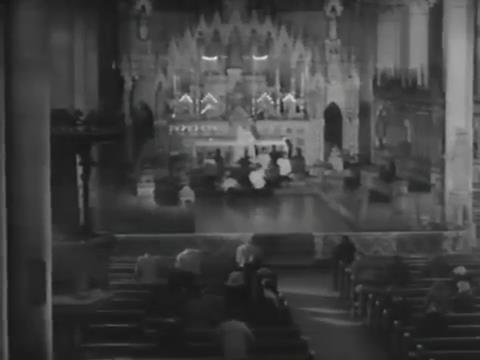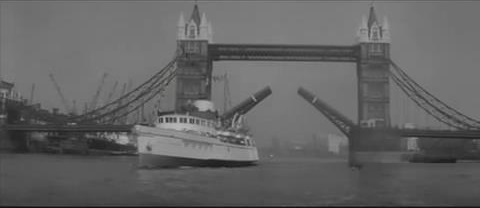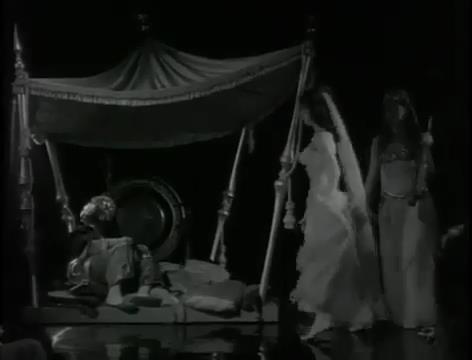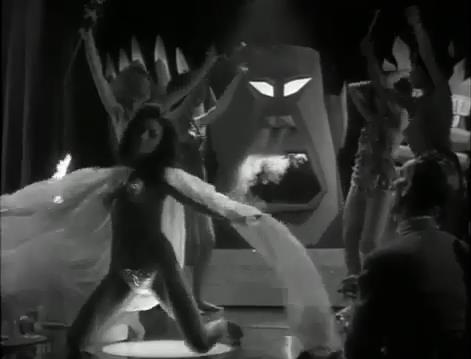Wide Boy
The first film in
an illustrious career looks small and portentous in its snooker around the bar,
for instance, located between The Woman in Green and Karaoke.
Heat Wave
Lake Windermere, High Wray, Hughes’ novel (as House Across the
Lake in UK).
The
American position, ferryman, convive, instrument of destruction.
A classic theme,
unfaithful wife takes new lover, does husband in, satisfies
herself with his money and old lover, the new worm turns her in.
At a very good
clip in just over an hour it mystified Leonard Maltin, “tame murder
yarn”.
The exquisite
construction aims for the dream state on Lake Windermere when, swerving to
avoid the ferry, the victim’s motor launch Carol topples him onto the deck bleeding and unconscious, in a fog
the wife names her poison.
Jimmy Sangster is
the assistant director, Ivor Slaney’s score takes its cue from “Dialogue du vent et de la mer”.
Confession

The
American cousin, an absolute villain.
His partner in
crime demands a share, a churchgoing Englishman is befooled into doing the deed.
The Englishman
confesses to his priest, both must be done away with.
Welles’ The Stranger remotely, Hitchcock (I Confess) at a far remove.
The Scarface
theme of Howard Hawks is pivotal. A magnificently detailed vision, down to the
evocation of FDR cast aside.
T.S. Eliot’s
Murder in the Cathedral (dir. George Hoellering) and Anouilh’s Becket (dir. Peter Glenville) are
suggested.
Britmovie, “nothing new to say”. Sandra Brennan (All Movie Guide) has evidently the wrong film, “biography of
a renowned man who recently died...” Halliwell’s
Film Guide, “so-so... slow pacing.”
The Atomic Man
J.W. Dunne is
mentioned by way of explaining the title character’s dilemma, he lives
seven-and-one-half seconds into the future (the UK title is Timeslip).
He is a nuclear
scientist known as the “isotope man” for his work, he’s
developing synthetic tungsten.
The United
Tungsten Corporation of Buenos Aires kills him for seven-and-one-half seconds,
replaces him so fast with a double that the plastic-surgery scars haven’t
healed, and sets up a reactor explosion at his London research laboratory.
These are the
essential matters, full of interest.
The film is a
triumph of style not only in the writing of this masterful plot, but in the
filming as well, and the major coup to start with is the casting of Gene Nelson
and Faith Domergue as the American reporters who get the story, Peter Arne as
the scientist and his double, Joseph Tomelty as the Irish cop from Scotland
Yard, and so forth.
The Long Haul
The job Stateside comes with a certain price, in England
there’s a crooked game going, for this is an ex-serviceman’s
lorry-driving Tirez sur le pianiste (dir. François Truffaut) and no mistake.
The roots of the
structure can be discerned with ease in They
Drive by Night (dir. Raoul Walsh). The ratfest
running the swindle at J. Easy & Co. Haulage Contractors is very like the
gang in Kazan’s On the Waterfront.
The job and the
moll are jettisoned for wife and child in Blighty.
Leonard Maltin, “minor fare.”
Jazz Boat

The
Cat, AKA Bert ‘Arris, and the Teddy boys who
pinch fags in ‘Ackney.
Just before West Side Story (dir. Robert Wise), and
then These Are the Damned (dir. Joseph Losey),
really a portent of the Southern California beach movies and Get Smart.
Newley of the Cagney school.
Script
by the director and John Antrobus from the author of Wide Boy, cinematography Ted Moore, camera Nicolas Roeg, music Ted
Heath and Kenneth V. Jones.
“Ahhhhhhh, are you thinkin’
of doin’ this job on your own, Pussy?”
“Caw, wha’d I tell ya, a genius, a proper genius!”
“Shhh! Please, please, I’m performing.”
“The
Law? Have you gone potty?
Wif all dis loot we can
retire and live like loads!”
“Oh, er,
say goodbye to the ring for me, will you?”
James
Booth, Bernie Winters, Al Mulock, David Lodge and
Anne Aubrey, the ring. Lionel Jeffries and Leo McKern, coppers.
A Thames cruise
with stolen jewels, all the principals, Ted Heath and His Music, a sunny day in
London town, and various jazz enthusiasts, concludes the thing at Dreamland.
Leonard Maltin, “energetic caper”. Eleanor Mannikka (All Movie
Guide), “has an identity problem.”
The Trials of Oscar Wilde
The two works
seen as opening nights are Lady Windermere’s Fan and The
Importance of Being Earnest.
Hughes’
remarkable use of widescreen amplifies the thought.
Russell adopts
the material in some senses for The Music Lovers (as well as a few notes
for Mahler), before Salome’s Last Dance.
The analysis
reveals Wilde as a “cat’s-paw” between Bosie and the Marquis.
It looked to
Bosley Crowther, New York Times, like a “whitewash” job.
Time Out Film
Guide follows Variety in
slighting James Mason’s performance as Sir Edward Carson.
The Small World of Sammy
Lee

Compere at the Peepshow, “smilingly yours,” a
loser at cards and the track.
Hughes takes Suschitzky for a Resnais ride through the opening credits,
later it’s Cassavetes’ The
Killing of a Chinese Bookie or Bogdanovich’s Saint Jack, or even Reisz’ The Gambler, here the seamy side comes up for inspection, as at the
tapestry works. The artist is intimately familiar with it but rarely shows it,
Hughes takes the opposite tack with glimpses of the obverse (“The Garden
of Allah”, French lady at her bath, virgin sacrifice) like John
Byner’s backturned impressionist or Baudelaire’s
Paris spleen. Two hoods enter the club (the younger one hears a lecture en route, “in my day all the
villains had black hats”), eyeglasses glint among the spectators as the
girl onstage does her striptease, the view from Sammy’s dressing room
window is a boy in an alley whittling of an afternoon on a box between a crate
and a stroller.
There is a friend
that sticketh closer than a brother, and a new king
over Egypt, which knew not Joseph, and Pinter’s The Dumb Waiter, and “what is probably the most second-rate
nasty small-minded dirty little show in the West End,” mind you,
“exactly what you deserve,” managed by “a high-class
ponce” who gives Sammy né Leeman the sack.
Philip French (Guardian), “so another opportunity
of taking an honest look at the London underworld is lost; fings
are still unfortunately what they used to be in the British cinema.” Bosley Crowther of the New York Times, with Newley
playing the lead “inevitably monotonous”. Variety, “incisive and tart...
deft assurance”. Andrew Sarris (Village Voice), “self-righteous to the point of
hypocrisy.” TV
Guide, “interesting, sometimes funny look at the underbelly of
Soho.” Britmovie, “hackneyed
melancholic plot”. Halliwell’s
Film Guide, “overlong ‘realist’ comedy-melodrama... vivid
but cursed with a tedious hero.”

Of Human Bondage
A very brutal
analysis of Madame Bovary, from
Somerset Maugham.
A.H. Weiler’s regard for the novel led him to some remarks
in the New York Times that do not
pertain to the film.
Variety
said it “may seem a hard-to-take slab of period meller,”
reported that Hughes took over from Henry Hathaway (who is credited with
“additional scenes”), and found the screenwriter’s cameo as a
medical student “inexplicable”.
Halliwell
describes this as “disastrous” and says that Laurence Harvey and
Kim Novak are “miscast”.
Arrivederci, Baby!
A highly refined
English joke on the Cold War, comprising a tribute to a formidable ally and a
cunning analysis of the foe.
Such things as
Mackendrick’s The Ladykillers
and Gilliat’s Left Right and Centre (and Huston’s The List of Adrian Messenger) form the essential structure, which
is later visible in Schepisi’s The
Russia House as well (other lines of thought include Dearden’s The Assassination Bureau and
Huston’s Prizzi’s Honor), cf. Hughes’ Heat Wave.
An
exquisite masterpiece, a bedrock proposition of Hughes’ art with a very
advanced technique.
Howard
Thompson of the New York Times,
“a good comedy.” TV Guide, “leaves a bad taste in
one's mouth.” In this connection, Hal Erickson (Rovi)
speaks of “historian Leslie Halliwell”, whose Film Guide has “loud, restless black comedy”.
The UK title is Drop Dead Darling, the proximate
influence Quine’s How to Murder Your
Wife.
Chitty Chitty Bang Bang
Chitty Chitty
Bang Bang has the same structure
as The Wizard of Oz from the same studio, with one important difference.
Whereas the fantastic element of the earlier film is a single dream, in the
later one it’s a story told extemporaneously during a picnic (like Alice
Through the Looking Glass) by Caractacus Potts (Dick Van Dyke) to his two
children, who interpret it imaginatively. This imparts a freer, looser
structure to the fantasy, which is why the transition is less marked.
Not Toto but
Chitty is the object of concern. Under the credits, you see it, long before the
children have named it, being driven to victory in three Grand Prix races and
swerving to avoid a child in a fourth, which results in a terrible crash that lands
it on the junk heap, where the children like to pretend it’s their own. A
scrap dealer proposes to melt it down, and the anguished children run home to
their father. In so doing, they cause Truly Scrumptious (Sally Ann Howe) to
swerve off the road and into a pond with her lemon-yellow roadster. This
repeated image at the beginning is a very odd echo of Lawrence of Arabia.
The realistic
dimension of Chitty Chitty Bang Bang was remade as The Jerk (dir. Carl Reiner). The Child
Catcher sequence might have been inspired by an incident in the famous account
of Kristallnacht from an English reporter who was there (and helped an elderly
Jewish lady to safety). “The object of the mob’s hate was a
hospital for sick Jewish children, many of them cripples or consumptives. In
minutes the windows had been smashed and the doors forced. When we arrived the
swine were driving the wee mites out over the broken glass, bare-footed and
wearing nothing but their nightshirts. The nurses, doctors and attendants were
being kicked and beaten by the mob leaders, most of whom were women.”
Earlier, Potts had responded to Truly’s charge of negligence by saying
sarcastically, “I suppose I could chain them up,” meaning his
children.
He’s an
inventor, evidently transatlantic, of the sort whose name does not appear on
the things he invents when they finally come to market. Grandpa (Lionel
Jeffries) served a brigadier in the wars. “The Fuzzy-Wuzzies were so
blinded by the shine on his boots they couldn’t see to
fight,” says Grandpa.
When Baron
Bomburst’s zeppelin lands at his castle (actually Neuschwanstein) in
Vulgaria, a movable stairway is rolled up to it bearing the name VULG-AIR. Ken
Adam’s designs multiply his genius across the decades. Gert Frobe as the
Baron is even more magnificent than he is in Goldfinger. He rejects his
birthday present from the Toymaker (Benny Hill), “dolls? Dolls? I have hundreds of
dolls!” The raid on the castle resembles The Dirty Dozen. The
family return home from their picnic and the children know that Truly’s
father (James Robertson Justice) is there, “that’s Lord Scrumptious’s car!” Grandpa and Lord
Scrumptious are playing H.G. Wells’ favorite game, Little Wars. The
script is by Roald Dahl and the director, with touches by Richard Maibaum. Anna
Quayle is nowhere more sublime, not even in Arrivederci, Baby!.
Vulgaria is the land where Curly, Moe and Larry go on a
suicidal assignment to take press photographs in Dutiful But
Dumb (dir. Del Lord). As
rightly expanded to a full-length color feature (in Super Panavision
70), with a sublime cast and songs by the Shermans
(amongst which “Toot Sweets”, “Truly Scrumptious” and
the showstopper rounded off by Lionel Jeffries, “POSH”, come
instantly to mind), it sacrifices the particular English whimsy of the Fleming
original for a piece of madness closer to George Pal’s tom thumb
or The Wonderful World of the Brothers Grimm, in a way. Caractacus Potts! “The Roses of Success”!
“You’re My Little Chu-Chi Face”!
|
What do you see, you people
gazing at me? |
Cromwell
The model for
this production is Renoir’s La Marsellaise, and given the
differences it is adhered to intellectually throughout for much the same
reason.
Criticism has not
taken the political slant on Hughes’ film that Renoir has always
suffered, it is simply dismissed.
It drives to the
foundations of democracy in Britain and finds them once again in
Cromwell’s epitaph.
The Internecine Project
The liquidation
of an industrial spy’s London network just ahead of his appointment as top
White House economic advisor.
The functions of
the network are espionage, bribery, blackmail, and the pilfering of War Office
research projects in exchange for, say, Arab oil contracts.
The spy, who
works for a corporation of corporations, holds down a professorship at Harvard.
The project is a
night of long knives (a Friday, to be exact), the four operatives live in the
heart of London and do not know each other, the man in the Foreign Office kills
the masseur at the Executive Directors Club, who kills the Continental whore,
who kills the research scientist, who kills the man in the Foreign Office.
A lady journalist
is in love with the spy.
Alfie Darling

A lorry driver on
the Normandy Ferries to Rouen, Trieste, Istanbul...
Everywhere birds, and a well-done-up bachelor pad to squire them to
when not out and about, all amusing studies.
The most
difficult of all birds, not V.N.’s model but a creatrix of London magazine spreads, falls to earth in Maidstone, Kent.
One of the most
beautiful of all films, perfectly filmed, a poem of London views and
perceptions (Ousama Rawi
cinematography), not as posh as Gilbert, but “from the ashes of
disaster...”
Time Out, “like an advert with no
product to sell.” TV Guide,
“everything about this film is cheap—the story, direction,
camerawork, and especially the acting.” Tom Hutchinson (Radio Times), “harmless and
charmless.” Halliwell’s Film Guide, “quite unworthy of the
writer-director.”

Sextette
Mae West’s
genius at work. “Dear autobiography,” she says into a tape recorder
as “Marlo... the answer to Apollo.”
It can bring down
mountains at a top-secret conference in the London hotel where she’s
honeymooning with a Sir, her sixth.
The State
Department renews her torch for “sexy Alexei” to win a da,
another ex the gangster returns from the dead to silence the tape and
“make up for lost time” (“don’t hold your
breath,” she tells him), another ex is the film director Karolny,
“son of Lubitsch”, screen-testing young Cartwright in a love scene.
Canby of the New
York Times was so flabbergasted that he said the authoress not only had no
talent but never had at any time, setting the benchmark for critics.
An absolutely
funny, brilliant film.
Night School
The mysteries of
maidenhead and inversion and infidelity and other anthropological matters in
Boston.
|
WHORES:
What will he do when they lie in bed? ROARING
BOYS: Draw his sword and chop off her head. The Rake’s
Progress |
“It
doesn’t look bad. It just is bad” (Vincent Canby, New York Times).
The penultimate
scene, from Carol Reed’s The Third Man, is rather curious.